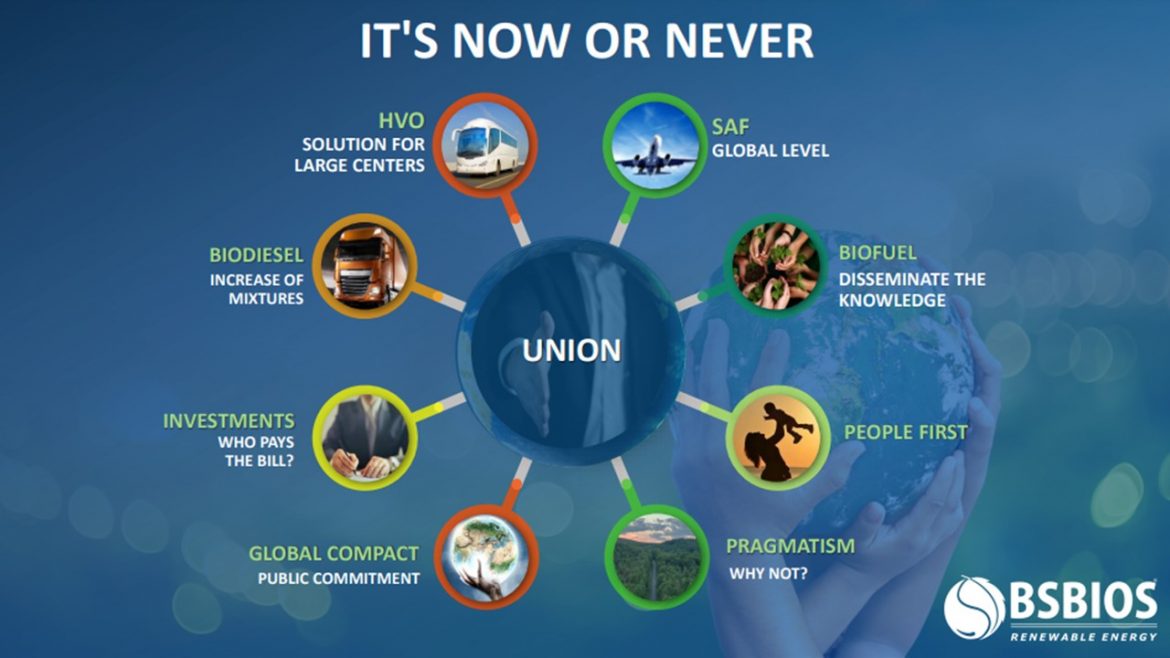I am very happy to be present at the United Nations Climate Change Conference 2021 (COP26), which is taking place in Glasgow, Scotland. On November 3, at 11 a.m. (local time), I will have the honor of speaking about biofuels, especially biodiesel and the advanced second wave.
In the presentation “Biofuels – a real solution”, to be held at the Brazil Pavilion of the exhibition, I will reinforce the concrete and immediate role that the product has for the global energy transition towards a cleaner matrix. To this end, I will highlight the experience of the Brazilian trajectory in this area, which has allowed us to have 25% of the matrix with the use of biofuels, being 5% with biodiesel.
In Brazil, they are seen as a clean and sustainable energy for the future, fruit of a beautiful history of public policies and private investments that have developed this national heritage and led the country to be a world reference.BSBIOS alone has produced, since 2011, 4.9 billion litres of biodiesel, which corresponds to 9.4 million tons of CO2 avoided.
We need COP26 to recognize this protagonism in a sustainability scenario so that the product is immediately contemplated in public policies in several countries, which ultimately drives demand.
Following the opening speeches on Monday (01/11), I confirmed that we are aligned with what is desired in the short term. Several key leaders, such as British Prime Minister Boris Johnson, highlighted the importance of increasing investment in large-scale, structuring projects. We need to convince institutional investors and the financial sectors to commit significant amounts of capital to tackling climate change.
Our business group is already exploring the potential of second wave biofuels, which includes HVO, SAF, Green Naphtha and Biogas, through our Omega Green project, a $1 billion investment in an advanced biofuels biorefinery in Paraguay, scheduled to start operating in 2025.
Some countries categorise biofuels as a transitional energy, but they have a much bigger role than that. The product is ready to fulfil its mission in the transition of the energy matrix with low investment costs and without the need to change the engine – an ideal solution for large urban centres.
It is also important to note that the increased production of biofuels helps boost food production. This is because the bran resulting from this production is used in the production of animal protein. Latin America has the potential to produce much more raw material for biofuels and will play an important role in reducing global emissions, without affecting the forest.
This is the message that I am bringing here in Scotland with great pride.


2 comment
Além da primeira finalidade, de produzir o biocombustível , energia limpa e sustentável, a contribuição do fornecimento do farelo oriundo da soja destinado a produção de carnes, tem contribuído pelo crescimento das exportações pelo Brasil.
E tão importante, que a partir de 2025, a produção do combustível na usina de segunda geração, contribuirá ainda mais na descarbonização do meio ambiente.
Excelente. Parabéns pelo artigo e seu protagonismo na América do Sul.